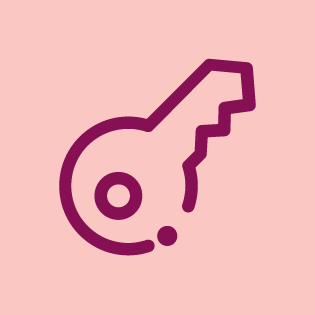Your read progress
Money and your mental health
4 minute read
Updated 10th September 2024 | Published 12th May 2021
Money worries can have a huge impact on your mental health, and equally, your mental health can influence how you manage your money too.
.png)
Money worries can have a huge impact on your mental health, and equally, your mental health can influence how you manage your money too. We know that it’s really important to discuss and raise awareness of the issues some face to remove the stigma around mental health, and we wanted to share some resources where you can go for help if you need it.
Money and mental health – the facts*
- Half (46%) of people in problem debt also have a mental health problem
- Almost four in ten (39%) people with a mental health problem said their financial situation had worsened their mental health problems
- People experiencing mental health problems are three and a half times more likely to be in problem debt than people without mental health problems
What is problem debt?
According to the Family Resources Survey, which is a series of annual research issued by the Government, problem debt is defined as being behind with any household bill or credit commitment. However, these figures issued by the Government don’t include store cards, mail order payments and informal loans from friends or family, so the actual figures of people behind with repaying money is likely to be even higher.
Got money worries? Free help and support is available
The sooner you get support if you’re struggling to manage your finances, the better.
Equally, it’s never too late to ask for help, and if your money worries are having an impact on your mental health, there are plenty of free resources available that are ready to help you get back on track. Our Smart Money People community have shared their experiences with the top-rated debt management companies here.
Here's a selection of what support and help is available if you need it:
Christians Against Poverty.
CAP offers free debt help and provides local community groups across the UK. Their services provide practical and emotional support to help you with whatever you might be facing.
Citizens Advice
Citizens Advice offer a network of local charities that provide free help and support on a range of different areas, including debt and money. Their website has several tools and resources to help you manage your money and get on top of your debts.
Debt Advice Foundation
The Debt Advice Foundation have a debt helpline number you can ring (from Monday - Friday 8am-6pm) for free debt advice.
Mental health and money advice
Developed by Mental Health UK, this website is an online only resource that offers practical advice and support to anyone with experiencing issues with money and their mental health.
Mind
Mind is a mental health charity that offers support and information to both people with mental health problems, and also to those who want to support someone they care about with a mental health problem. They also have helplines which can provide information on mental health problems.
Money Wellness
Money Wellness offer confidential debt advice and ongoing support, from budgeting tips to solutions that could make your borrowing more manageable.
National Debtline
The National Debtline charity has a helpline and live chat to provide free advice and support for those in need. Their website also has a range of tools such as budget planners to help you start to feel in control with your money.
Payplan
PayPlan's can give you a personalised debt solution. They also offer free live chat support.
StepChange debt charity
StepChange offer free, confidential advice to help you with your debt and works with you to help manage your money.
The Breathing Space scheme
The Government launched a scheme at the start of May which gives anyone who’s in problem debt with 60 days of ‘breathing space’. During these 60 days you’ll still need to continue paying your debts, but there won’t be any interest or fees added to your existing debts. The Government website gives more detail on the scheme and what exclusions there are, and the charity debt charity StepChange has some great resources on the scheme too.
To get access to the breathing space scheme you need to be referred by a debt advice provider, or your local authority where they give advice.
The Money Advice Service
This is a free and impartial advice service set up by the government, and can help you to feel in control of your money with tools and resources, and also offers debt advice.
The contents of this blog don’t constitute advice. If you are struggling with your mental health and have money worries, please visit some of the resources listed in the blog who will be able to provide you with advice and guidance. For 24-hour support, you can also call Samaritans on 116 123.
*Facts taken from the Money and Mental Health Policy Institute factsheet.

Written by Emma
Head of Marketing
Emma joined us in 2021. She is passionate about ensuring others make good choices with their money using all the information and data available.
As Featured By
Join our mission
We use the power of consumer reviews to help increase trust and transparency in financial services and to deliver industry leading insight and events.
Write a reviewExplore our other topics

News: Awards

News: Industry news

News: Smart Money People news

Blogs: Money choices



.png)